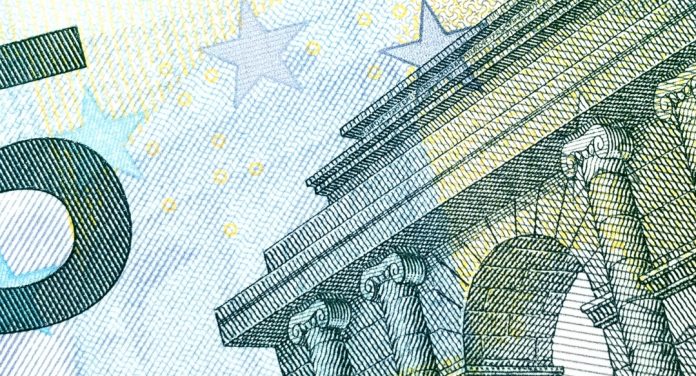Both the pound and the euro were broadly out of favour on Monday amid weak UK data and ECB concerns. The pound euro exchange rate close at approximately the same level that it opened on Monday. The pound euro exchange rate closed at €1.1205.
| What do these figures mean? |
|---|
When measuring the value of a pair of currencies, one set equals 1 unit and the other shows the current equivalent. As the market moves, the amount will vary from minute to minute. For example, it could be written: 1 GBP = 1.13990 EUR Here, £1 is equivalent to approximately €1.14. This specifically measures the pound’s worth against the euro. If the euro amount increases in this pairing, it’s positive for the pound. Or, if you were looking at it the other way around: 1 EUR = 0.87271 GBP In this example, €1 is equivalent to approximately £0.87. This measures the euro’s worth versus the British pound. If the sterling number gets larger, it’s good news for the euro. |
Pound traders digested a barrage of disappointing UK economic data on Monday. Perhaps the most concerning reading for pound investors was the monthly GDP reading. The statistics showed that the UK economy contracted for a second straight month in May. After contracting -0.1% in April, the UK economy shrank by a further -0.4% month on month in May. This was significantly worse than the -0.1% slowdown analysts forecast.
The weak data highlights the impact of Brexit and trade tensions on the UK economy. Business investment has slowed considerably, and business decisions are being pushed back. The bad news didn’t stop with the GDP data, manufacturing and industrial production figures also showed a marked slowdown. The weak outlook for the UK economy hit demand for the pound.
| Why does poor economic data drag on a country’s currency? |
|---|
| Slowing economic indicators point to a slowing economy. Weak economies have weaker currencies because institutions look to reduce investments in countries where growth prospects are low and then transfer money to countries with higher growth prospects. These institutions sell out of their investment and the local currency, thus increasing supply of the currency and pushing down the money’s worth. So, when a country or region has poor economic news, the value of the currency tends to fall. |
WeakToday investors will look towards UK labour market data, which could put more pressure on the pound. Analysts expect unemployment to remain at multi decade lows of 3.8%. However, the good news stops there. Analysts expect the closely watched wages component of the report to show a slowdown in growth. This would add to the mounting evidence of an economic slowdown in the UK.
Cautious Comments From ECB Officials Weigh On Euro
There was no eurozone economic data to drive the euro in the previous session. Instead investors focused on comments from the European Central Bank. Just last week, Mario Draghi and the ECB presented a less dovish picture than what market participants were expecting. As a result, the euro rallied hard.
However, the latest commentary from the central was more dovish. Policy makers said that they were prepared to cut interest rates again if economic growth weakened in the rest of the year. This sent the euro lower.
| Why do raised interest rates boost a currency’s value? |
|---|
| Interest rates are key to understanding exchange rate movements. Those who have large sums of money to invest want the highest return on their investments. Higher interest rate environments tend to offer higher yields. So, if the interest rate or at least the interest rate expectation of a country is relatively higher compared to another, then it attracts more foreign capital investment. Large corporations and investors need local currency to invest. More local currency used then boosts the demand of that currency, pushing the value higher. |
The euro could come under pressure today as investors look towards the release of sentiment data. Analysts are expecting sentiment to have halved in June from 5.3 to just 2.5 as trade concerns darken the outlook for the eurozone economy.
This publication is provided for general information purposes only and is not intended to cover every aspect of the topics with which it deals. It is not intended to amount to advice on which you should rely. You must obtain professional or specialist advice before taking, or refraining from, any action on the basis of the content in this publication. The information in this publication does not constitute legal, tax or other professional advice from TransferWise Inc., Currency Live or its affiliates. Prior results do not guarantee a similar outcome. We make no representations, warranties or guarantees, whether express or implied, that the content in the publication is accurate, complete or up to date. Consult our risk warning page for more details.
This article was initially published on TransferWise.com from the same author. The content at Currency Live is the sole opinion of the authors and in no way reflects the views of TransferWise Inc.





